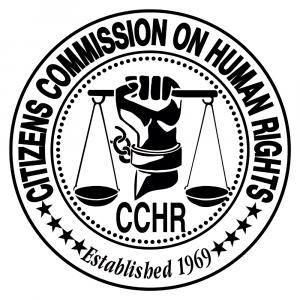
National Suicide Prevention Month: Why Are So Many Veterans Still Prescribed Suicide-Linked Antidepressants?

One in seven American adults who committed suicide in 2018 was a U.S. military veteran. The suicides averaged 17.6 per day.
Human rights group calls on the Veterans Administration to add website warnings about the increased risk of suicidal thoughts and actions from antidepressants.
WASHINGTON, DC, US, September 23, 2021 /EINPresswire.com/ -- Of the 46,510 American adults who committed suicide in 2018, one in seven was a U.S. military veteran, according to the 2020 National Veteran Suicide Prevention Report from the U.S. Department of Veterans Affairs (VA).
The 6,415 veteran suicides in 2018 averaged 17.6 per day.
The upswing in veteran and active military suicides has long been associated with skyrocketing prescriptions for mind-altering drugs. Between 2005 and 2011, the U.S. Department of Defense increased the number of military prescriptions for psychoactive drugs, including antidepressants, antipsychotics and mood stabilizers, by nearly 700%, which was more than 30 times faster than the civilian rate.
By 2013, one in six American service members was on at least one psychiatric drug, the Military Times reported.
In 2014, with more than 60% of suicides in the military committed by those on antidepressants or recently undergoing outpatient psychiatric care, the Citizens Commission on Human Rights (CCHR) produced its acclaimed documentary, “Hidden Enemy: Inside Psychiatry’s Covert Agenda,” which linked the soaring prescription and suicide rates. [https://www.cchr.org/documentaries/hidden-enemy/]
Colonel Bart Billings is a retired military psychologist with 34 years of military service, who founded the International Combat Stress Conference, the longest running conference on combat stress in the world. Col. Billings has stated that in all his years of practice with military and veterans diagnosed with "post-traumatic stress syndrome," he never once had to prescribe a mind-altering psychiatric drug.
In a 2014 interview, he explains that 99% of those who go into combat experience “post-traumatic stress, a normal reaction to being in an abnormal environment.” He goes on to say, “If you give them time to normalize themselves…, then the post-traumatic stress dissipates and they get back to living their normal lives.” [https://www.youtube.com/watch?v=F02HElsg8uI]
“I explain to the psychiatrists and psychologists,” he continues, “that you really shouldn’t be medicating them because they have a normal brain, and once you medicate [them], what happens is it’s much, much harder to work with them because now you’re working with someone whose brain functioning is chemically, physiologically changed by the medications.”
Because military psychiatrists have consistently failed to prevent military and veteran suicides, Col. Billings states, “In any other organization, …if you constantly fail, …you get fired,” and he asks, “Why has not psychiatry in the military been relieved of their duties?”
Despite all the mounting evidence of antidepressants increasing the risk of suicide, the U.S. Veterans Administration’s (VA) National Center for PTSD website still promotes antidepressants as a recommended treatment for “PTSD.”
The VA’s website is an example of what one study found was widespread misinformation about antidepressants on medical websites. Published in 2020 in the International Journal of Risk and Safety in Medicine, the study looked at 39 websites in 10 countries that provided information on antidepressants.
The researchers’ conclusion: “The information was generally inaccurate and unhelpful and has potential to lead to inappropriate use and overuse of antidepressants and reduce the likelihood that people will seek better options for depression like psychotherapy.” They noted that only two of the 39 websites warned that the risk of suicide is increased in people of all ages.
The likely overuse of antidepressants is indicated in recent figures provided by the Veterans Health Administration (VHA). In response to a recent FOIA request by the Citizens Commission on Human Rights, the VHA revealed that in 2019, 4.2 million of the 9 million U.S. veterans enrolled with the VHA for health care services were prescribed psychotropic drugs,
with 41% (1.75 million) of them prescribed antidepressants.
When the FDA suspected in 2004 that antidepressants could be linked to suicidal thoughts and actions, based on evidence it had reviewed, it asked drug manufacturers of 10 widely used antidepressants to add warnings that patients prescribed the drugs should be monitored for worsening depression and suicidal thoughts and actions, especially when starting or discontinuing the drugs.
Later that year, the FDA ordered that antidepressant labels carry a black box warning concerning the increased risk of suicidal thinking and actions in children and teens, a warning that was officially extended in 2007 to include young adults aged 18 to 24. A black box warning is designed to call attention to serious or life-threatening risks.
Though the FDA has not yet extended the black-box warning to all age groups, studies support the view that it should.
In a landmark 2016 study published in the Journal of the Royal Society of Medicine, a team of researchers at the Nordic Cochrane Centre reviewed clinical trials in which healthy adults with no history of depression or other mental disorders were given antidepressants. The researchers concluded that “antidepressants double the occurrence of events in adult healthy volunteers that can lead to suicide and violence.”
They further calculated that one of every 16 mentally healthy adults taking antidepressants experienced harm related to suicide or violence. Consider, then, how antidepressants could affect those already struggling with depression, traumatic stress or other mental health issues.
“While it is now generally accepted that antidepressants increase the risk of suicide and violence in children and adolescents (although many psychiatrists still deny this), most people believe that these drugs are not dangerous for adults,” these researchers wrote. “This is a potentially lethal misconception.”
It is not known how antidepressants work. What we do know is that the drugs disrupt the body’s normal biochemistry in ways that are not fully understood.
A team of researchers led by Paul W. Andrews, Ph.D., a psychology professor and evolutionary biologist, analyzed previous studies to determine the overall physical impact of antidepressants on the human body. Antidepressants target serotonin, a neurotransmitter that, in the course of the evolutionary adaptations of the human body, has come to regulate emotion, development, nerve cells, the clotting process, attention, electrolyte balance, and reproduction.
The researchers’ findings, published in 2012 in Frontiers in Psychology, were straightforward: “Our review supports the conclusion that antidepressants generally do more harm than good by disrupting a number of adaptive processes regulated by serotonin.”
Psychiatrist Peter Breggin, M.D., describes antidepressants as neurotoxic because they harm and disrupt the functions of the brain, causing abnormal thinking and behaviors that include anxiety, irritability, hostility, aggressiveness, loss of judgment, impulsivity, and mania, which can lead to violence and suicide. [http://breggin.com/antidepressant-drugs-resource-center/]
Antidepressants can also take away the joy in life. “In the long run, antidepressants, like almost all psychiatric drugs, lead to apathy, indifference, and lack of caring,” writes Breggin. “Emotional life is dulled and relationships lack empathy and love.”
What’s more, a 2018 study published in the journal Psychotherapy and Psychosomatics found that taking antidepressants led to worse depression symptoms years later. First author Michael P. Hengartner, Ph.D., noted the need for a long-term study because “the efficacy of antidepressants based on mostly industry-funded short-term trials has been challenged due to selective reporting and systematic method biases…and the long-term benefits of antidepressants have also been debated.“ [https://pubmed.ncbi.nlm.nih.gov/29680831/]
Subjects in the study were assessed for depression symptoms over a 30-year period. The researchers found that those who used antidepressants at any time during the study had an 81% greater chance of having more severe depression symptoms at the end of the study.
The adverse effects of antidepressants are also experienced in the physical and emotional withdrawal symptoms that can result from discontinuing the drugs, especially after long-term use.
“Discontinuation carries a risk for relapse of depression and anxiety, as well as suicidal thoughts,” says the U.S. Pharmacist website.
For identifying other withdrawal symptoms, a psychiatrist came up with the acronym “FINISH”: flu-like symptoms, insomnia, nausea, imbalance, sensory disturbances (often referred to as electric shocks or “brain zaps”), and hyperarousal (anxiety/agitation). [https://pubmed.ncbi.nlm.nih.gov/9632038/]
A study of “antidepressant discontinuation syndrome,” published in 2020 in The Journal of the American Osteopathic Association, warned: “Given the widespread use of antidepressants, physicians may be driven by an overestimated consideration of potential benefits, while appraisal of adverse effects are, by comparison, often overlooked.” [https://jom.osteopathic.org/abstract/antidepressant-discontinuation-syndrome-a-common-but-underappreciated-clinical-problem/]
Concerning discontinuation, the researchers wrote, “with extended use, [antidepressants] can be notoriously difficult to quit because they can produce a state of physical dependence.”
Despite the millions of prescriptions written for antidepressants over the years, how to safely discontinue them is still not definitively known. “Tapering regimens have not been validated in systematic studies; therefore, recommendations are based on anecdotal opinion,” the researchers wrote. Referring to the most commonly prescribed class of antidepressants, selective serotonin reuptake inhibitors (SSRI), they advised that “gradual tapering of an SSRI does not completely prevent antidepressant discontinuation syndrome.”
Still further, the researchers, noting that prior research also found an elevated risk of suicidality during both antidepressant use and antidepressant discontinuation, recommended that “patients should be warned about and monitored for the possibility of increased depressive and suicidal symptoms.”
The findings of these and other studies about the increased risk of depression and suicidal thoughts and actions when taking or discontinuing the antidepressants warrant mention on the VA webpage that recommends these drugs. Veterans have a right to the full disclosure of the risks of the drugs recommended to them. Without this vital information, veterans cannot make fully informed decisions about whether to take or stop using antidepressants.
In combating veteran suicides, the Citizens Commission on Human Rights will continue to push for more widespread public awareness of the increased the risk of suicidal thoughts and behavior from taking antidepressants.
CCHR has long recommended that individuals experiencing depression should ask their physician for a complete physical examination with lab tests to discover any underlying physical conditions that could be causing the mental symptoms that would otherwise be misdiagnosed as mental disorders. Many prescription drugs, including antidepressants, are known causes of depression, and a physician should re-evaluate whether to continue prescribing the drugs.
WARNING: Anyone wishing to discontinue or change the dose of an antidepressant is cautioned to do so only under the supervision of a physician because of potentially dangerous withdrawal symptoms.
With the purpose of eradicating abuses and restoring human rights and dignity to the field of mental health, CCHR was co-founded in 1969 by members of the Church of Scientology and the late psychiatrist and humanitarian Thomas Szasz, M.D., recognized by many academics as modern psychiatry’s most authoritative critic. Since then, CCHR has helped obtain more than 180 laws that protect mental health patients.
The CCHR National Affairs Office in Washington, DC, has advocated for mental health rights at the state and federal level. The CCHR traveling exhibit, which has toured 441 major cities worldwide and educated over 800,000 people on the history of abusive psychiatric practices up to the present time, has been displayed in Washington, DC, at the Congressional Black Caucus Foundation Annual Legislative Caucus and other locations.
Anne Goedeke
Citizens Commission on Human Rights, National Affairs Office
+1 202-349-9267
email us here
Visit us on social media:
Facebook
Colonel Bart Billings, Psychologist—Help our Veterans, Don't Label & Drug Them
EIN Presswire does not exercise editorial control over third-party content provided, uploaded, published, or distributed by users of EIN Presswire. We are a distributor, not a publisher, of 3rd party content. Such content may contain the views, opinions, statements, offers, and other material of the respective users, suppliers, participants, or authors.




